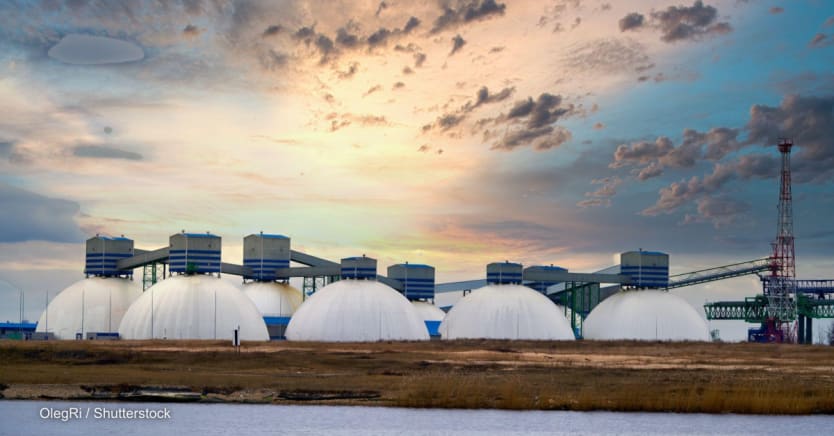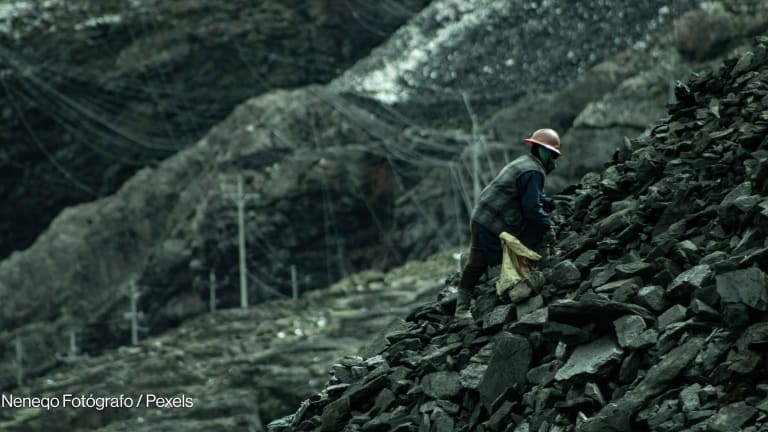Opinion: Africa’s opportunity to lead climate discussion to pragmatism

Africa is going into the COP 28 climate conference with a unique advantage: A unified voice from the recent inaugural Africa Climate Summit. This aligns well with a COP 28 leadership committed to pragmatism and action, and a determination to elevate the voice of the global south. Africa should now leverage this unified voice during COP 28 and beyond to pull the industrialized world toward a pragmatic approach to climate change — to everyone’s benefit.
Africa and the global south at large do not have the luxury of industrialized countries to debate theoretically the issues of fossil fuel use in the transition to global deep decarbonization. The continent must focus on the dual goals of reducing emissions and accelerating economic development. This is in sync with the long-established paradigm of common but differentiated responsibilities in addressing climate change according to different stages of economic and social development.
Inevitably, the pragmatic approach to reaching net zero in Africa puts natural gas at the center of policy and investment priorities. Carbon-light natural gas, which serves many end-use sectors and is abundant in Africa, can drive the continent’s development and commitment to an affordable low-carbon economy. Accelerated economic development is very likely a critical enabler of environmentally sustainable commitments at the needed scale and pace. The increased use of natural gas in high-income countries, such as the United States, has advantaged industrial competitiveness and enabled rapid growth in variable wind and solar deployment. Similar benefits can accrue in Africa.
The global north must respect African leadership on how the continent reaches its emission reduction targets. Africa’s economic development, which relies in part on the continent’s ambitious industrialization goals, requires the use of its abundant natural gas. While natural gas use will produce CO2 emissions, it can be a catalyst for attracting further clean energy investments and for accelerating the adoption of renewable energy in Africa, ultimately reducing emissions relative to increased economic activity.
The continent is blessed with considerable hydropower, but there is little doubt that significant expansion of wind and, especially, solar energy is essential. Natural gas-fired power plants can provide balancing power, reducing intermittency, and enabling higher penetration of renewables. Natural gas use on the continent can extend the African supply chain to significant industrial production and associated jobs and expertise. By boosting economic growth, natural gas can help reduce the risk profile of countries, thereby increasing clean energy investments from the private sector.
African countries must therefore continue to push for the global acceptance of natural gas in their energy mix and advocate at COP 28 for a realistic decarbonization strategy that combines renewables and natural gas at scale. This includes a push for international multilateral funding for gas-to-power and hybrid generation plants, midstream and downstream gas infrastructure, as well as clean cooking.
Africa should also forcefully argue for a substantial increase in climate-friendly investments at COP. The renewable energy transition is well underway in Africa and can be scaled up with firm funding commitments and a pipeline of bankable projects. Annual investments in renewable energy generation grew tenfold from less than $500 million between 2000 and 2009 to $5 billion from 2010 to 2020. However, there is still a big gap and room to grow: The African continent has the highest solar energy potential in the world but has installed only 5 gigawatts of solar photovoltaics, which represents less than 1% of the global total.
In addition, investing in transmission will be fundamental to bringing these renewable projects online and powering African countries to economic prosperity. Africa's transmission investment needs are estimated to be more than $45 billion over the next eight years. Such projects can drive long-term sustainability by connecting areas of high renewable energy generation to demand centers.
Closing the generation and transmission investment gap, which will require scaling up funding toward project development to build up the pipeline of green bankable projects, must be top of mind for African countries at COP 28. After several funding commitments from successive COPs and an inaugural Africa Climate Week, the question of how funding will be deployed is taking on more importance relative to the question of where funding will come from. Structures for deploying funding already exist and must be built upon, such as the Alliance for Green Infrastructure in Africa, or AGIA. Launched by the African Union Commission, the African Development Bank, and Africa50 in partnership with leading private and public stakeholders, AGIA is an African-led and execution-oriented solution for an accelerated transition to net zero, with a cohesive and inclusive approach to climate finance.
The United Arab Emirates’ recent $4.5 billion in funding commitments to Africa to achieve real impact toward net-zero goals at scale is a good model for any future funding initiatives. The UAE made the announcement with specific key performance indicators including the number of megawatts, timelines, project types, and identified partners for execution — including Africa50. This level of detail and accountability of organizations tasked with implementing will make the difference between wavering commitments and ones that result in actual funding for bankable, impactful projects.
Africa has an opportunity to raise its voice and make COP 28 one of the most productive and impactful COPs to date. With a clear objective of expanding renewable energy financing and securing support for natural gas projects, African countries can leave COP 28 with tangible results that will accelerate Africa’s drive toward simultaneous development and decarbonization.
Search for articles
Most Read
- 1
- 2
- 3
- 4
- 5








